All Stories
-
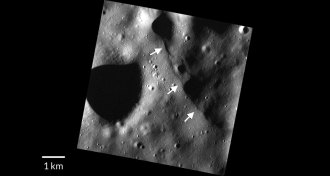 Planetary Science
Planetary ScienceMercury’s surface still changing
A population of small cliffs on Mercury suggests that the planet might have been tectonically active in the last 50 million years.
-
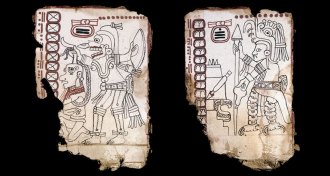 Archaeology
ArchaeologyAncient Maya codex not fake, new analysis claims
New report suggests an ancient Maya text — the bark-paper Grolier Codex — could be the oldest known document in Americas.
By Bruce Bower -
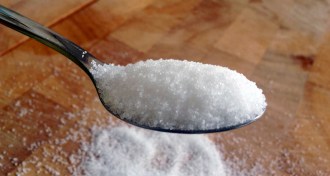 Health & Medicine
Health & MedicineSugar industry sought to sugarcoat causes of heart disease
Sugar industry has long, sweet history of influencing science.
By Laura Beil -
 Earth
EarthNuclear blasts, other human activity signal new epoch, group argues
A group of scientists will formally propose the human-defined Anthropocene as a new epoch in Earth’s geologic history within a few years, probably pegging the start date to nuclear tests.
-
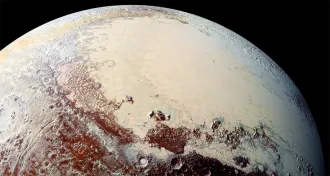 Planetary Science
Planetary ScienceA salty sea could lurk beneath the heart of Pluto
An ocean more than 100 kilometers thick might hide beneath Pluto’s surface.
-
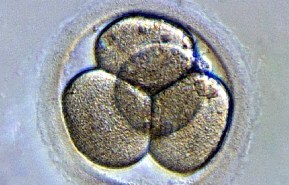 Genetics
GeneticsNew era of human embryo gene editing begins
Gene editing of viable human embryos is happening, in and out of the public eye.
-
 Health & Medicine
Health & MedicineIt’s time to retire the five-second rule
Wet food can slurp bacteria off the floor in less than a second.
-
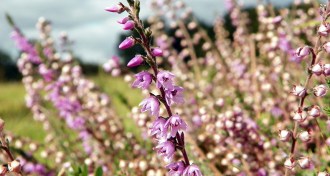 Plants
PlantsNarrowed plumbing lets flower survive summer cold snaps
Ice barriers help alpine plants save their flowers during summer cold snaps.
-
 Genetics
GeneticsEndurance training leaves no memory in muscles
Unlike strength training, endurance workouts left no genetic trace months later, calling into question idea of a general muscle memory.
-
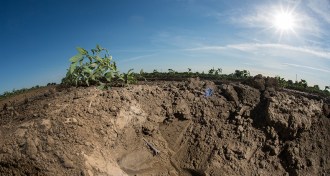 Earth
EarthNatural ally against global warming not as strong as thought
Soils may take in far less carbon by the end of the century than previously predicted, exacerbating climate change.
-
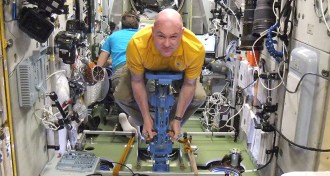 Astronomy
AstronomyOld-school contraptions still work for weighing astronauts
To weigh themselves, astronauts still use technology invented about 50 years ago.
-
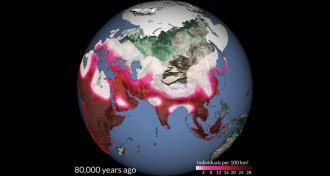 Genetics
GeneticsSingle exodus from Africa gave rise to today’s non-Africans
Genetics and climate studies differ on when modern humans left Africa.